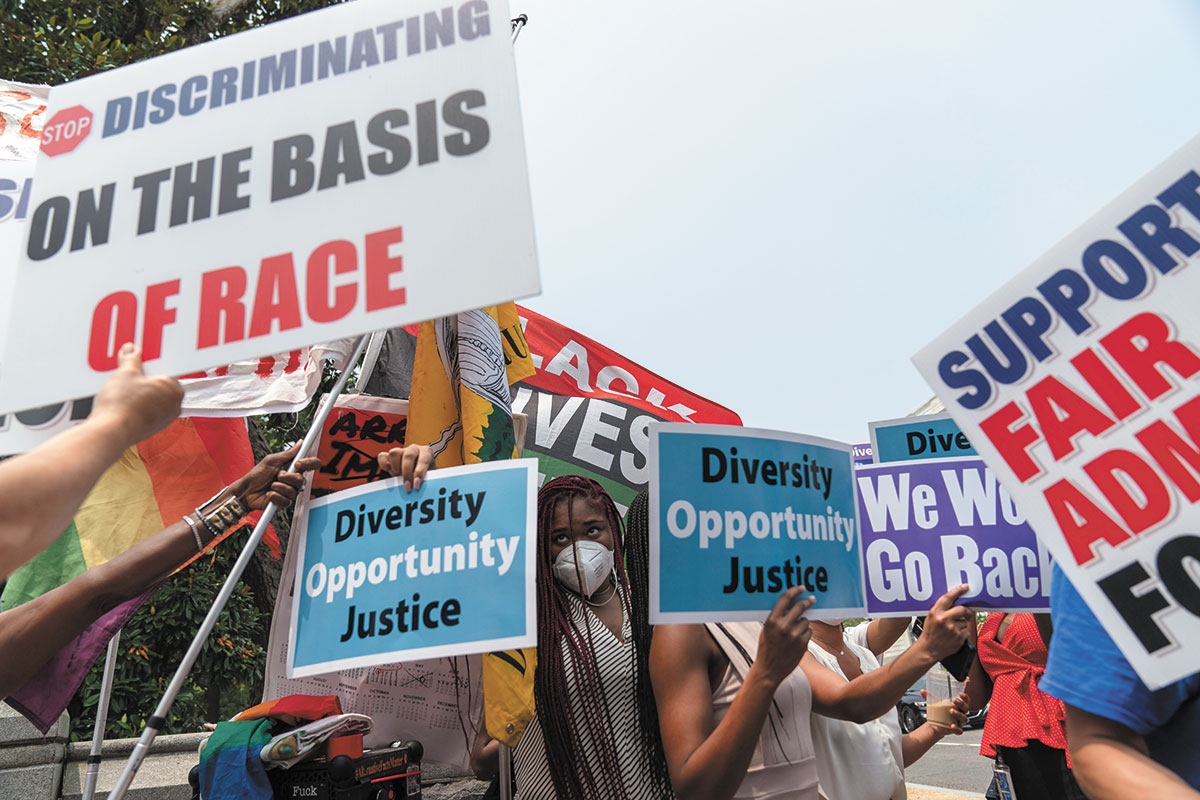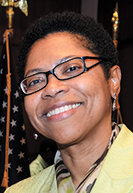Subscriber Benefit
As a subscriber you can listen to articles at work, in the car, or while you work out. Subscribe Now
(IL file photo)
It’s been a little more than three months since the U.S. Supreme Court struck down affirmative action in college admissions and removed race as a direct consideration for admission.
Although the decision didn’t necessarily take law schools by surprise, it forced them to quickly adapt their admissions processes to comply with the language of the high court’s decision as they enter into this year’s admissions cycle.
Law schools like Indiana University Maurer School of Law, IU Robert H. McKinney School of Law and the Notre Dame Law School are waiting to see if the Supreme Court’s decision will impact their application numbers or become an obstacle to their efforts to foster diversity in their student body compositions.
The Biden administration offered guidance in August through the U.S. Education and Justice departments on strategies schools can use to promote racial diversity on their campuses without the use of affirmative action.

According to The Associated Press, the guidance suggested colleges can focus their recruiting in high minority areas, for example, and take steps to retain students of color who are already on campus, including by offering affinity clubs geared toward students of a certain race. Colleges can also consider how an applicant’s race has shaped personal experience, as detailed in students’ application essays or letters of recommendation, according to the guidance.
IU McKinney McKinney School of Law Dean Karen Bravo said she sincerely hopes the volume of law school applications at IU McKinney and other law schools is not affected by the Supreme Court decision.
“I think there is a risk that it will,” Bravo said.
Changes in application ‘prompts’
The Spivey Consulting Group bills itself as one of the country’s premier law school admissions consulting firms, with collectively more than 250 years of law school admissions experience spread across its team that includes former admissions officers from some of the country’s premier law schools. Anna Hicks-Jaco, Spivey’s chief operating officer, said the company works with approximately 1,000 law school applicants every year on a remote basis.

Hicks-Jaco said the company got a ton of questions related to law school applications after the Supreme Court decision in June. She said prospective law students were asking if they could disclose their race or ethnicity on their applications, to which she added, “Of course they can.”
Also, many law schools added new “prompts” on their applications, Hicks-Jaco continued.
One common way the prompts have changed, she said, is law schools are not requesting diversity statements and are instead asking applicants in broader language to describe challenges they have overcome. She said most schools have removed specific references to race and ethnicity and now talk more about topics like a student’s income or their personal experiences.
A blog post on Spivey’s website from August details changes various law schools have made to their application components in the wake of the recent Supreme Court decision on race-conscious admissions, with the post noting, “(W)e have seen more law schools making changes to their application components and instructions this cycle than in any other we can recall.”
The post included examples from several Ivy League law schools, the University of Michigan and Notre Dame Law School.
According to the post, the Notre Dame prompt talks about the school’s mission to educate a “Different Kind of Lawyer” and mentions Dean G. Marcus Cole’s open letter to the Notre Dame law community in 2020 following the death of George Floyd. The prompt then asks applicants what experiences, hardships or adversity they have faced that have shaped their perspectives on law and justice, and, “How has your own circle, culture, and community inspired you, your morals and ethics?”
Indiana Lawyer reached out to Notre Dame Law to speak with Cole, but a law school spokesperson said the dean was not available for an interview. The school did not respond to a follow-up email that asked for details on modifications Notre Dame has incorporated into its law school admissions in the wake of the U.S. Supreme Court’s decision in June.
Hicks-Jaco said it was probably too early to tell what kind of impact the decision will have nationally on law school applications.
“In terms of our business, we haven’t seen a decrease,” she said.
Still committed

Prior to the high court’s release of its opinion in June, a group of law school deans — including Dean Christiana Ochoa of IU Maurer — issued a statement affirming the deans’ commitment to diversity.
The group of 15 deans represent Big Ten law schools, including IU Maurer. In their statement, the deans said they were “joining together to affirm our commitment to advancing diversity, equity, and inclusion through legally permissible means, regardless of the outcome of the cases pending before the U.S. Supreme Court.”
Ochoa told Indiana Lawyer that the law school is abiding by the Supreme Court decision and has looked at all avenues that are legal in terms of admissions.
She said she thought it was too early in the cycle to see what impact the decision will have on prospective law students and the number of applications received at IU Maurer. As dean of the law school, Ochoa said her job is to ensure students, faculty and staff feel like they’re part of a school where there’s a learning environment that is open and accessible to people coming from a broad range of backgrounds.
“The Supreme Court opinion makes that all the more important,” she said.
At IU McKinney, Bravo said the school responded to the Supreme Court’s decision by making changes to its application.
The Law School Admission Council, through which IU McKinney handles its law school applications, put in a mechanism by which the applications are in compliance with the Supreme Court decision’s language prohibiting race as a factor in college admissions. The applications now do not ask about race or ethnicity, nor do they ask for a diversity statement.
LSAC was proactive about offering that mechanism, Bravo said.
“We remain committed to fostering a learning environment where students learn about becoming professionals in a multicultural society,” she said.
Bravo added that by the fall of 2024, it should become more apparent whether the Supreme Court decision has impacted the number of students applying to law school.
Advocates keeping watch

Aaron Taylor, executive director of the AccessLex Center for Legal Education Excellence, which advocates for affordability and access to law school, said he doesn’t think the Supreme Court decision will have an immediate impact in the number of law school applications that are submitted.
“Obviously, I think it will have an impact on who gets in,” he said.
Taylor said research conducted on states that prohibited race as a consideration for admissions in state universities, including California, Michigan, and Nebraska, showed a pretty immediate decline in the number of students of color accepted and getting admitted to law schools in those states. By the fourth and fifth year after admissions-related laws were passed in those states, he said, the decline was even more pronounced.
Overall, law schools are becoming somewhat skittish about discussing what they’re going to do publicly, Taylor said.
But one general thing that’s come from the Supreme Court decision, he said, is that a lot of law schools are restating their commitment to fostering diversity. He said schools are earnestly trying to respond to the situation that’s been created by the decision, while also showing a commitment to following the law.•
Please enable JavaScript to view this content.
